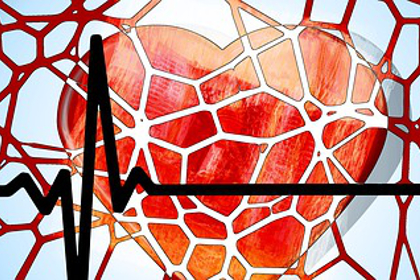
How Statins Degenerate Your Brain Health
Tens of millions of people are taking drugs to lower their cholesterol levels. Most of those medications are in a drug class known as statins. Some doctors are even starting to recommend children use statin drugs to control their cholesterol levels. I couldn't disagree more.
The challenge with statin drugs is that they address surface issues with cholesterol in a simplistic manner. But your body is a complex organism that uses cholesterol every day to build new cell walls, in the formation of vitamin D and in the production of hormones.
Statin drugs are HMG-CoA reductase inhibitors. They function by blocking the enzyme in your liver that naturally produces cholesterol for your bodily functions.
July 27, 2016 | Source: Mercola.com | by Dr. Joseph Mercola
Tens of millions of people are taking drugs to lower their cholesterol levels. Most of those medications are in a drug class known as statins. Some doctors are even starting to recommend children use statin drugs to control their cholesterol levels.1 I couldn’t disagree more.
The challenge with statin drugs is that they address surface issues with cholesterol in a simplistic manner. But your body is a complex organism that uses cholesterol every day to build new cell walls, in the formation of vitamin D and in the production of hormones.
Statin drugs are HMG-CoA reductase inhibitors. They function by blocking the enzyme in your liver that naturally produces cholesterol for your bodily functions.
The drug essentially reduces your total cholesterol number, without addressing your high-density lipoproteins (HDL), low-density lipoproteins (LDL), very low-density lipoproteins (VLDL) or triglyceride levels.
While your total cholesterol number gives you a general overview, it isn’t the information needed to evaluate your risk of cardiovascular disease. Instead, you’ll need to compare your HDL, LDL, VLDL and triglyceride numbers against your total cholesterol.
Statins May Trigger Neuromuscular Disease
Statin drugs are notorious for causing side effects like muscle damage and weakness. What has been less publicized is a potential link between statins and a progression of muscle wasting that may lead to a diagnosis of amyotrophic lateral sclerosis (ALS), also known as Lou Gehrig’s disease.
The World Health Organization (WHO) Foundation Collaborating Centre for International Drug Monitoring receives safety reports associated with statin medications and has noted a disproportionately high number of patients with upper motor neuron lesions among those taking statin medications.2
The lead researcher, Ivor Ralph Edwards, is an expert in toxicology, acute and chronic poisoning and adverse drug reactions.3 He also is the senior adviser at the WHO Uppsala Monitoring Centre in Sweden, and he says:4
“We do advocate that trial discontinuation of a statin should be considered in patients with serious neuromuscular disease such as the ALS-like syndrome, given the poor prognosis and a possibility that progression of the disease may be halted or even reversed.”
Researchers from Johns Hopkins Medical School cautioned patients that although they discovered a link between taking statins and the development of a rare neuromuscular autoimmune disease, this condition could be treated with steroids and other immunosuppressive drugs.5
The researchers stated there was no need to fear this popular “fantastic medication.”6
Dr. Andrew L. Mammen, a neurologist who treats patients with statin-associated myopathies at Johns Hopkins University School of Medicine, is quoted in a Johns Hopkins press release saying, “Statins save a huge number of lives. They dramatically reduce the risk of strokes and heart attacks.”
The implication is you need statins in order to reduce your risk of heart attacks and strokes, and you should take them despite the risk for developing a degenerative neurological disease for which you will require medication to suppress your immune system.
This despite the knowledge that total cholesterol numbers are not indicative of your overall risk for cardiovascular disease. I would advise you to seriously evaluate the risks and benefits and consider your alternatives before you start taking a statin drug.
